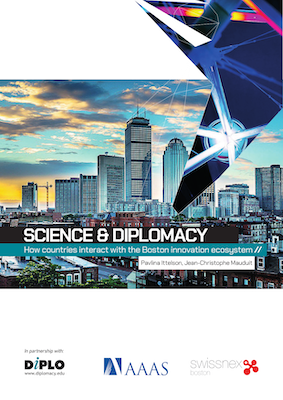Author: Katharina Beyer
Science Diplomacy and planetary health: A medical practitioners’ perspective
2022
Note: This article is a part of the publication ‘Science diplomacy capacity development: Reflections on Diplo’s 2021 course and the road ahead’
‘Bringing actors together that belong to different social worlds’ very well describes a significant part of my work as a medical doctor (MD) in primary care and emergency medicine. Being an MD means navigating between scientific knowledge, investors and economists, politicians, insurance companies, and of course the patient. The emergency department is an intersection of different disciplines with an uneven workload and a mix of patients. Managing it requires an approach where parties can give advice, are listened to, and are included in decisions.
In general, ‘science in diplomacy’ is most relevant in my working context. The COVID-19 pandemic has brought some ‘diplomacy for science’ (cooperation between otherwise independent and occasionally competing structures for scientific needs).
Until now I have applied Science Diplomacy mainly at an informal and national level. Working in different cantons in a country with a federal health system and in different types of institutions (university hospital, regional hospital, GP consultation in rural areas, rescue organizations) at the same time, I played the role of mediator between the different institutions, their policies within a canton, or in-between cantons, including the French-German language barrier, or between rural and urban settings.
In the context of the COVID-19 pandemic, I closely follow the scientific news, which does not always help to reduce uncertainty, and can raise more questions or doubts. However, I also depend on policymaking, for example at the beginning of the pandemic on testing strategies, and now on vaccination schemes. At cantonal or national borders, it has sometimes been a challenge to explain certain realities to patients. Misfits at the science-policy interface are part of my daily life. After an initial high interest in trying to solve some of the misfits by ‘boundary spanning’ and better communication skills, the radicalization of part of the society and a certain inaction within politics (partly motivated by the first problem) made me feel a bit resigned.
Regarding future Science Diplomacy challenges, those regarding neuro-rights are particularly relevant for my work. I am regularly confronted with the fine line between benefit and misuse, for example with regard to the opioid crisis within the ethical dilemma of pain-management. This is especially true when it concerns the central nervous system. I am aware that regulations that do not prevent technical progress or withhold cures from patients are necessary.
As for how I plan to incorporate Science Diplomacy in my work in the future, I am considering investing more into ‘boundary spanning’ and knowledge brokering, as well as reflection on future challenges. Witnessing climate change firsthand working in ski resorts, whilst studying the effects it can have on health, motivates me to do more in the domain of planetary health.








